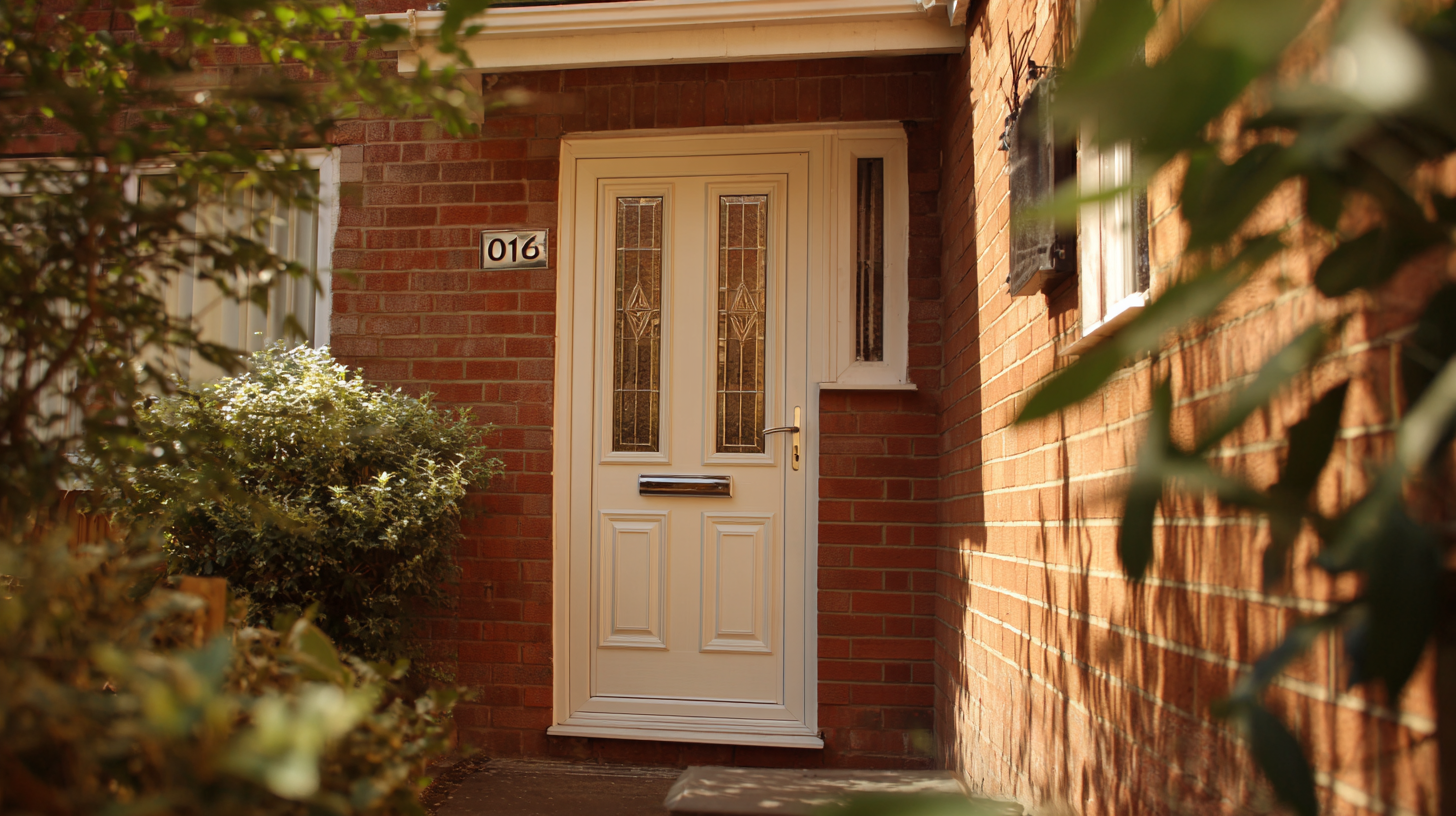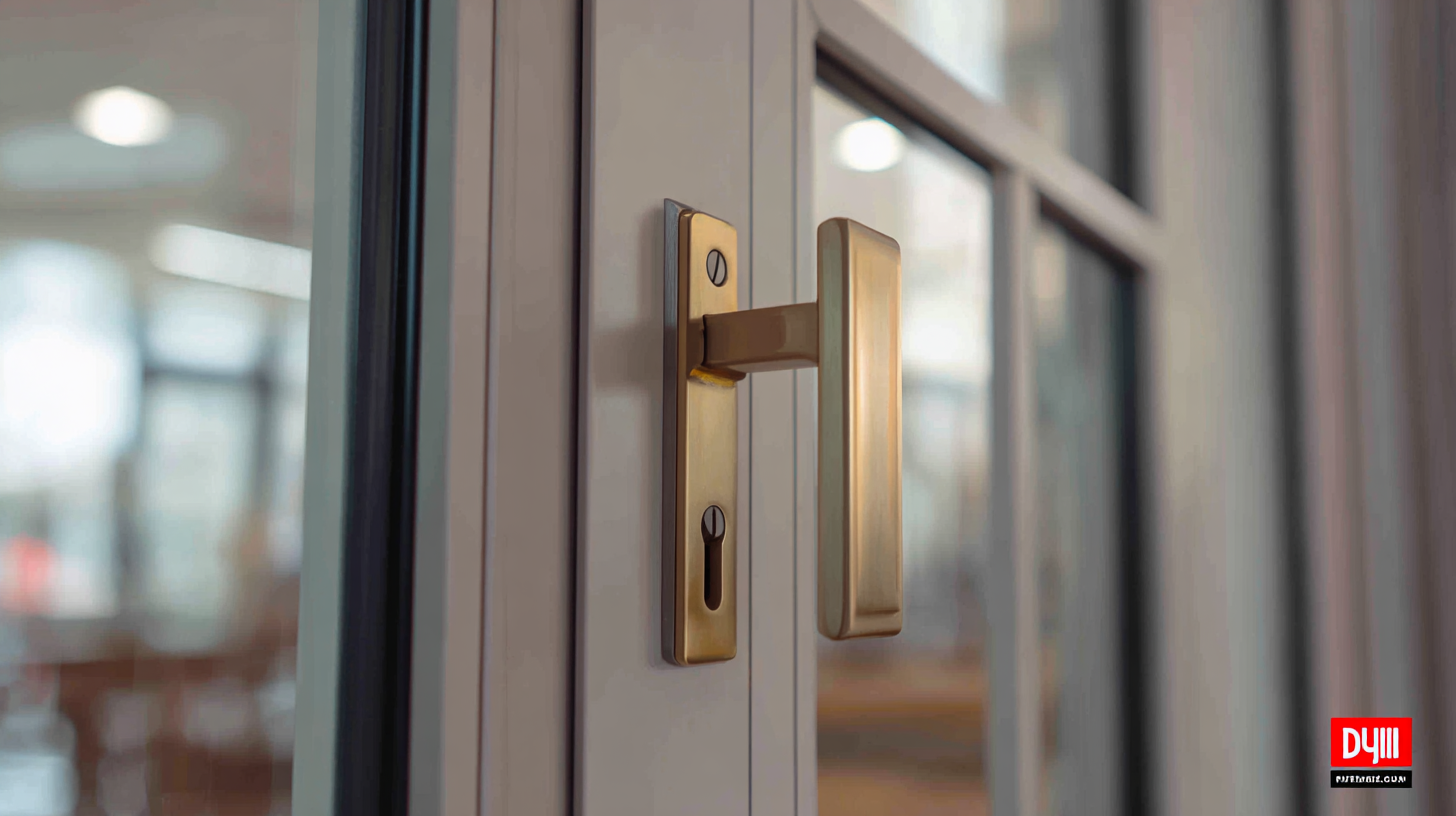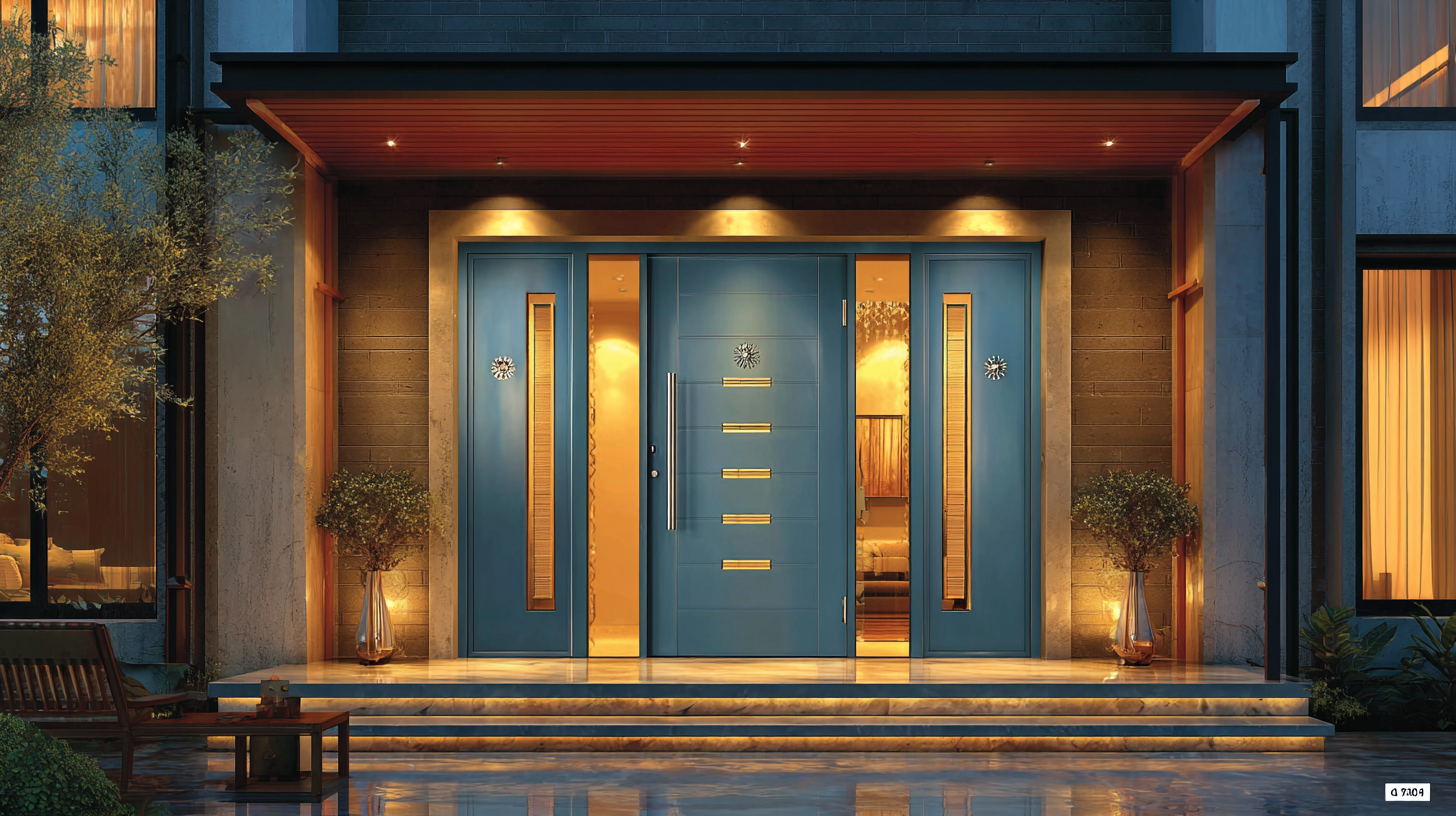Ultimate Guide to Choosing the Best Aluminium Alloy Doors for Your Home
In recent years, the demand for Aluminium Alloy Doors has surged as homeowners seek durable, energy-efficient, and aesthetically pleasing solutions for their entryways. The global aluminum door market was valued at approximately $10 billion in 2022 and is projected to grow substantially, driven by rising construction activities and the growing preference for eco-friendly materials. According to a report by Research and Markets, the shift towards low-maintenance and lightweight alternatives has further propelled the popularity of aluminium alloy doors, which are known for their resilience against weathering and corrosion.
 As the phrase "精工细造,中国制造,服务世界" suggests, this industry is characterized by precision engineering and a commitment to quality, making it essential for consumers to understand the various options available. This ultimate guide will navigate you through the critical aspects of selecting the best Aluminium Alloy Doors for your home, ensuring you make an informed decision that combines style, functionality, and longevity.
As the phrase "精工细造,中国制造,服务世界" suggests, this industry is characterized by precision engineering and a commitment to quality, making it essential for consumers to understand the various options available. This ultimate guide will navigate you through the critical aspects of selecting the best Aluminium Alloy Doors for your home, ensuring you make an informed decision that combines style, functionality, and longevity.
Understanding the Basics of Aluminium Alloy Doors and Their Benefits
Aluminium alloy doors are increasingly popular for residential properties due to their impressive strength, durability, and energy efficiency. Unlike traditional wooden doors, aluminium alloy doors are resistant to rust, corrosion, and warping, ensuring a long-lasting investment for homeowners. According to a recent market report by Research and Markets, the global market for aluminium doors is projected to grow at a CAGR of 6.3% from 2021 to 2028, reflecting their rising appeal.
When choosing aluminium alloy doors, it’s essential to consider thermal insulation properties. Modern designs incorporate thermal breaks that enhance energy efficiency, significantly reducing heating and cooling costs. A well-insulated aluminium door can improve a home's energy performance by up to 40%, according to the Department of Energy.
Tips: Always check for the thermal performance ratings provided by the manufacturer before making a purchase. Look for doors with low U-values and the appropriate certifications, such as ENERGY STAR. For aesthetic coherence, match the door style and finish to the existing architecture of your home, allowing for a seamless integration that adds both beauty and value.
Key Factors to Consider When Choosing Aluminium Alloy Doors for Your Home
When choosing aluminium alloy doors for your home, it's crucial to consider various factors that can significantly impact both aesthetics and functionality. One key aspect is the alloy grade; doors made from high-grade aluminium (such as 6061 or 6063) exhibit enhanced strength and superior corrosion resistance, making them a wise investment. According to a report from the Aluminium Association, high-quality aluminium doors can last up to 50 years with minimal maintenance, proving their durability and long-term value.
Tip: Always check the thermal performance of aluminium doors. Look for products that are double-glazed or have thermal breaks to improve insulation. Studies indicate that energy-efficient doors can reduce heating and cooling costs by up to 20%, resulting in substantial savings over time.
Another important consideration is the door's design and security features. Modern aluminium doors can be customized to fit various styles, from sleek and contemporary to traditional. Ensure that the door is equipped with robust locking mechanisms, as statistics from security reports show that homes with enhanced door security measures face 60% fewer break-ins. Choosing the right door not only elevates your home's aesthetic appeal but also contributes to your overall peace of mind.
Ultimate Guide to Choosing the Best Aluminium Alloy Doors for Your Home
This chart illustrates the key factors to consider when choosing aluminium alloy doors for your home, showcasing their importance on a scale from 1 to 10 based on expert recommendations.
Comparative Analysis of Popular Aluminium Alloy Door Alloys and Their Uses
When selecting aluminium alloy doors for your home, it’s essential to understand the different types of alloys available and their unique properties. The most common alloys used in door manufacturing include 6063, 6061, and 6082.
Alloy 6063 is popular for its excellent extrudability and aesthetic finish, making it a preferred choice for residential applications. Its medium strength and good corrosion resistance also contribute to its longevity, making it ideal for decorative doors and frames.
In contrast, alloy 6061 is known for its superior strength and durability, making it suitable for more demanding environments. This alloy can withstand higher loads and impact, which is why it’s often used for commercial doors and high-traffic areas.
Lastly, alloy 6082 is acknowledged for its impressive mechanical properties and is frequently used in structural applications. With its excellent weldability and good corrosion resistance, it’s an ideal choice for larger doors and frames that require robust support. Understanding these alloys will help you make an informed decision, ensuring that your chosen doors meet both aesthetic and functional requirements.
A Step-by-Step Guide to Measuring for Your Aluminium Alloy Doors
When measuring for aluminium alloy doors, precision is key to achieving a perfect fit and ensuring the security, energy efficiency, and aesthetic appeal of your home. According to the latest report by the Aluminium Doors Association, improper measurements can lead to misfits, resulting in increased energy costs and potential security vulnerabilities. Homeowners should begin by measuring the width and height of the door frame, keeping in mind that the standard range for residential aluminium alloy doors generally falls between 30 to 48 inches in width and 80 inches in height.
In addition to the frame dimensions, it's essential to account for any irregularities in the wall structure. A survey conducted by the Building Research Establishment found that nearly 15% of homes have frames that are not perfectly square. Therefore, an accurate assessment of both vertical and horizontal measurements, preferably at the top, middle, and bottom of the frame, is advisable. Also, consider the thickness of the door to ensure it complements the overall design and functionality, as most aluminium alloy doors range between 1.75 to 2.25 inches in thickness. By adhering to these guidelines, homeowners can make informed decisions and choose the right aluminium alloy doors for long-term satisfaction.
Tips for Maintaining and Caring for Your Aluminium Alloy Doors
Maintaining aluminium alloy doors is crucial for ensuring their longevity and optimal performance. To begin with, regular cleaning is essential. Use a mild detergent and warm water to wipe down the surface, removing dirt and grime that can accumulate over time. Avoid abrasive cleaners or scrubbers that may scratch the finish. Pay special attention to the door tracks and hinges, as debris can hinder their functionality. A periodic rinse with water can help keep the door looking fresh and prevent any buildup of dust or corrosion.
Another important aspect of caring for your aluminium alloy doors is ensuring that seals and gaskets remain intact. Inspect them regularly for wear and tear, as compromised seals can lead to drafts and energy loss. If you notice any damage, consider replacing the seals to maintain energy efficiency and prevent water ingress. Additionally, lubricating moving parts like hinges and locking mechanisms with a silicone-based lubricant can enhance functionality and prevent rust. Taking these simple steps can extend the life of your aluminium doors and keep them looking great for years to come.






